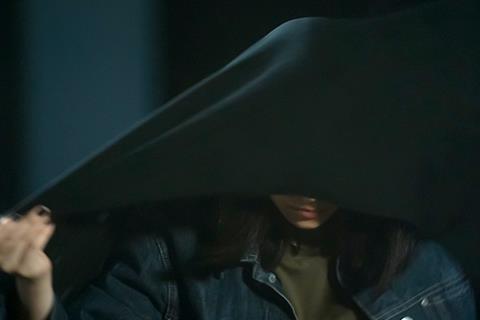Mehrnoush Alia uses the legend of Scheherazade to explore male power and manipulation

Dir/scr: Mehrnoush Alia. USA/Iran. 2025. 87mins
In the legend that forms the framing device of the Persian collection of tales known as One Thousand And One Nights, Scheherazade is a triumphant underdog, a resourceful woman who survives by harnessing the power of narrative. But Iranian-American director Mehrnoush Alia wants us to remember all the women that went before her. Seen from this angle, it’s not a tale of survival – it’s a horror story.
A relentless, screw-tightening crescendo
Countless young women were lost before Scheherazade turned the tables on the entitled ruler who had used his position of power to terrorize and kill them. Alia’s intuition in this powerful, deeply uncomfortable experimental thriller is to recast the sadistic sultan as a film director and the virgins he married and murdered as actresses who are auditioning for a part in his next project – an adaptation of One Thousand And One Nights.
Based on Alia’s 2015 short Scheherazade, the film was apparently shot clandestinely in the US-based director’s homeland of Iran. The set is bare: a soundstage with a dusty black floor and a single, central chair, where actresses who have come to audition for the film within the film submit to a mostly unseen male director’s increasingly bullying prompts and questions. A single source of light, high up, stage right, lends the faces of these increasingly unsettled young women a tenebrous chiaroscuro.
The dramatic arc is not an arc at all, but a relentless, screw-tightening crescendo. With a couple of exceptions, the actresses are young. One has embarked on a 14-hour journey to make the audition and seems ready for anything to get the part. But female boldness and female modesty are equally distasteful to the autocrat behind the camera, whose method – to find his prey’s weaknesses, and manipulate them – is, we realise, something both therapy and certain extreme method-acting schools have in common.
Played by leading Iranian theatre director and actor Mohammad Aghebati – Alia’s production partner at Maaa Art – the director-within-the-film is cagey about the project he’s casting. He tells his sceptical ex-wife, to whom he has promised the part of Scheherazade, that the line of young actresses waiting outside are there to play the unlucky virgins who preceded her character. “I can’t cast corpses”, he barks.
Alia creates empathy through uncertainty. As the unnamed male director’s innuendos become more explicit and threatening, his victims pass from disbelief to something like terror. Some fight back; one is canny enough to suspect that this is all an act. We, the audience, suffer from similar doubts. Is this an arthouse Candid Camera project? Are we watching genuine audition tapes of actresses summoned by the actual Mohammad Aghebati? A tension-releasing coda that leaps the fourth wall does not so much resolve the issue as raise more questions, as the female director and the male director-within-the-film arrive on set to congratulate and console.
If this impressive debut feature has a flaw it is that, for all the emotional purchase and veracity of the performances on display here – often expressed through the eyes alone, in a series of close-ups, in the best horror tradition – it remains something of an exercise. Brief references to honour killings, veils and Islamic Republic film censorship apart, 1001 Frames could be set anywhere where a toxic patriarchy uses violence and coercion to impose itself. This may be Alia’s intention, but the drive for universality makes this admirable film an even tougher watch than it already is.
Production companies: Maaa Films, Distorted Pictures
International sales: Loco Films, info@loco-films.com
Producers: Mohammad Aghebati, Mehrnoush Alia, Sina Sharbafi
Cinematography: Hamed Hosseini Sangari
Production design: Morteza Farbod, Hamed Hosseini Sangari
Editing: Mehrnoush Alia
Music: Ava Rasti
Main cast: Mohammad Aghebati, Mahin Sadri, Leili Rashiri, Parastoo Ghorbani, Behafarid Ghaffarian, Avin Tafakori, Aisan Ghanbari, Shayesteh Sajadi
























No comments yet